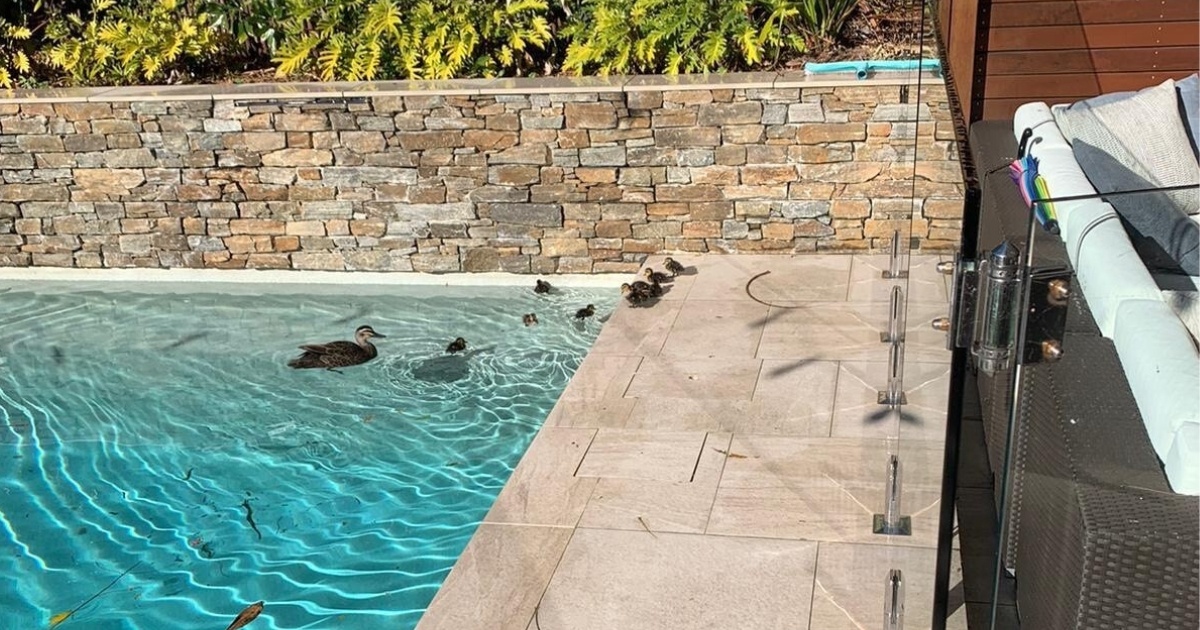2025 Mikla Lewis Grant - Gondwana Rainforest Trust
February 2026
For emergency rescue support 24/7 please call 1300 094 737

As the weather warms up, more Australians head outdoors to enjoy their backyard swimming pools. But while a pool can be a great place to cool off, it can also pose unexpected dangers to native wildlife. Birds, lizards, frogs, possums, snakes, and even gliders are often found trapped or injured in pools across the country.
If you've ever spotted wildlife in your pool, you're not alone—and with a few simple changes, you can help make your backyard a safer place for local animals.

Wildlife often come into backyards for food, water, or shelter, especially during dry periods or extreme heat. Unfortunately, many animals can’t recognise the risks posed by man-made structures like pools. A bird swooping in for a drink or a frog hopping by at night may quickly find itself in danger.
Once inside a pool, animals can struggle to climb out, especially if the edges are steep or slippery. Wildlife found in pools are often waterlogged, distressed, and at risk of drowning or inhaling water, which can lead to secondary complications like pneumonia.
Common wildlife found in swimming pools include:
Lizards and geckos
Possums and gliders
Birds such as kookaburras or magpies
Frogs and toads
Snakes (especially during warmer months)
Even the skimmer box can be a trap for small animals, so it’s important to check it regularly.
The good news is that there are simple, wildlife-friendly modifications you can make to your pool area to reduce the risks:
Leave a sturdy rope or purpose-built animal ramp secured to the pool edge, reaching down into the water. This gives struggling animals something to grip onto and climb out safely.
If your pool has steps, try adding large flat rocks or bricks to help smaller animals step their way out of the water. Traditional pool steps are often too high or slippery for wildlife to manage alone.
Inspect your pool and skimmer box morning and evening, especially during summer. If you find a native animal in your pool, gently remove it using a net (if safe to do so), place it in a ventilated box with a towel, and call WIRES on 1300 094 737.
Provide shallow dishes of water in shady parts of your garden, especially during hot weather. Add stones or sticks inside the dish to give insects and small creatures an easy way out if they fall in.
When not in use, a tightly secured pool cover can help prevent animals from accidentally falling in, particularly at night.
If you find injured, sick, or orphaned wildlife in your pool or garden, please contact WIRES immediately. Our trained volunteers are available 24/7 to help assess the animal and provide care where needed.
📞 Call WIRES Rescue Line on 1300 094 737
💻 Or report a rescue online
Stay in touch and get our regular rescue stories, WIRES updates and a free copy of our 15 Ways to Help Wildlife ebook
February 2026
February 2026
February 2026
February 2026
January 2026
January 2026